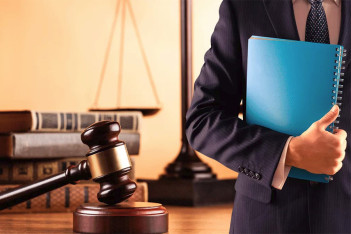Closing a criminal case at the investigation stage
A criminal case initiated against a person is not just a paper procedure, but a real threat to freedom, reputation and future. However, it is important to remember: even after the opening of criminal proceedings, not all is lost. The law provides for the possibility of closing the case at the pre-trial investigation stage, without transferring it to the court. Such an outcome is possible only with the active participation of a professional lawyer who is able to prove the unfoundedness of the suspicion or the presence of procedural violations.
Legal stages of assistance in closing the case at the pre-trial investigation stage
The procedure for closing criminal proceedings before the court is the result of thorough legal work, in which each of the following steps is of critical importance:
- Initial legal assessment of the case: At this stage, the lawyer gets acquainted with the circumstances of the case: studies documents, proceedings materials, interrogation protocols, decisions on suspicion (if any), analyzes the legal qualification. It is important to determine whether there are procedural violations in the case, the absence of a crime, or other grounds for closing the case.
- Determining the legal position and forming a strategy: After analyzing the materials, the lawyer determines the most effective way of protection: filing a petition with the investigator, filing complaints with the prosecutor, or even initiating judicial control over the investigation. The choice of strategy depends on the evidence base, the investigation's actions, and the client's status (witness, suspect, etc.).
- Collecting evidence that refutes suspicion: In many cases, it is the lawyer who carries out parallel work on collecting evidence: taking testimony, obtaining video recordings, requesting documents, ordering examinations, or conducting journalistic investigations. These materials can be submitted to the pre-trial investigation bodies with a request to close the proceedings. 4
- Submitting attorney requests and complaints: The lawyer actively interacts with the investigator and prosecutor: files a petition to close the case, to change the legal qualification, or to declare evidence inadmissible. In case of inaction - applies to the court with complaints in accordance with Article 303 of the Criminal Procedure Code of Ukraine.
- Participation in investigative actions: During investigative actions, the specialist monitors compliance with the client's rights, does not allow provocations or excess of authority by the investigation, and also promptly responds to unlawful actions that may affect the course of the case.
- Official closure of the proceedings: In the event of successful implementation of the strategy, the investigator or prosecutor issues a resolution to close the criminal proceedings. The specialist checks its validity, legality and monitors the actual termination of the client's procedural status.
Closing a criminal case at this stage is the result of consistent, competent work, which requires time, experience and complete immersion of the lawyer in the process.
Conditions for providing legal assistance during the closure of criminal proceedings at the investigation stage
In order for a lawyer to effectively support the process of closing a case at the investigation stage, certain organizational and legal conditions must be met:
- Early application for assistance: The earlier the client contacts a lawyer after the initiation of criminal proceedings, the greater the chance of avoiding the transfer of the case to court. In the first days of the investigation, the authorities are still forming an evidentiary base, so the lawyer's intervention at this moment can change the course of events.
- Complete and truthful information from the client: To choose the right tactics, the specialist must have the entire picture of events. The client must provide complete information, even those that at first glance seem insignificant or compromising. Attorney-client privilege guarantees the confidentiality of all data.
- Official execution of the contract: In order for the specialist to have the right to act in the interests of the client, he must be officially authorized. This is done by concluding a legal assistance contract. In some cases, if there is a power of attorney or warrant.
- Providing access to case materials: Access to pre-trial investigation materials allows you to assess the evidentiary base of the prosecution, find weaknesses and identify procedural violations. If access is limited, the lawyer initiates its receipt through a motion or complaint.
- Readiness for active cooperation: The client is expected to be open, willing to meet, participate in investigative actions (if appropriate) and follow the advice of a specialist. Only joint work brings real results.
Compliance with these conditions is an important step towards the successful completion of the case at the pre-trial stage.
Advantages of contacting a lawyer during the procedure for closing a case at the pre-trial investigation stage

Prompt response and protection even before the suspicion is handed over: The specialist manages to seize the initiative at the beginning of the investigation.

Knowledge of the procedural weaknesses of the pre-trial investigation bodies: The lawyer is able to use violations by the investigation as an argument for closing the case.

Minimization of reputational risks: The sooner the case is closed, the less likely it is that information about it will become public or harm the future.
Common questions about the role of a lawyer when closing criminal proceedings at the investigation stage
Question
What is the role of a lawyer in criminal proceedings at the pre-trial investigation stage?
Answer
A lawyer in criminal proceedings at the pre-trial investigation stage protects the rights of the suspect or victim, participates in investigative actions, files motions, challenges illegal actions of the investigator or prosecutor, and ensures compliance with the law throughout the process.
Question
How long does it take for a lawyer to close a pre-trial investigation?
Answer
The duration of the closure of a pre-trial investigation by a lawyer depends on the circumstances of the case. In simple cases, it can take several weeks, in more complex cases - months. It is important that there are legal grounds for closure (absence of elements of a crime, failure to prove guilt, etc.).
Question
How can a lawyer stop a criminal case at the stage of the pre-trial investigation?
Answer
A lawyer can stop or achieve the closure of criminal proceedings at the pre-trial stage by filing motions, providing evidence of the client's innocence, challenging the illegal actions of the investigator or prosecutor, as well as initiating the closure of the case due to the absence of elements of a crime or other legal grounds.
What does the cost of legal assistance during the closure of a criminal case at the stage of the investigation depend on?
The price of legal support for closing criminal proceedings at the investigation stage depends on several factors: the volume of work (number of investigative actions, complexity of the legal position), urgency (emergency response or preparation in advance), client status (witness, suspect), as well as the number of stages that will have to be passed - from petitions to participation in court sessions. The cost is discussed after the initial consultation and can be fixed or hourly.
ConclusionClosing a criminal case before transferring it to court is a real chance to stop negative consequences at the very beginning. But this chance can only appear when there is an experienced lawyer nearby who can see legal details, think strategically and act proactively. If proceedings have been opened against you, do not delay: every minute without professional support is a risk to your freedom, reputation and peace of mind. Entrust your case to professionals and let legal assistance protect your present and future.




































